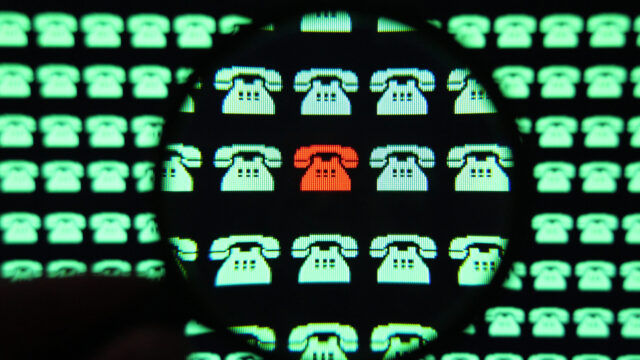EPIC, Coalition Urge FCC to Support Domestic Violence Survivors in Low-Cost Programs
August 19, 2022

EPIC, joined by more than ten survivor advocacy and direct service organizations, urged the Federal Communications Commission this week to maximize survivor self-determination and minimize burdens on survivors in any changes to its low-cost programs for phone service and broadband. The groups emphasized that the FCC must permit survivors to self-attest to their status, rather than requiring a third-party to “vouch” that they were abused, as well as self-attest to their financial hardship, as survivors may not have access to personal documents or to the funds listed in a financial document. EPIC also emphasized the importance of data minimization, as abusers may have connections within law enforcement organizations or may be officers themselves.
The FCC’s Notice asked how the Commission might (1) make it easier for survivors of domestic and sexual violence to participate in Lifeline and the Affordable Connectivity Program, and (2) require or permit telecom providers to automatically omit certain calls from customer-facing records, such as monthly phone bills and other call logs, to prevent abusers from discovering a survivor’s attempts to seek help. The FCC’s Notice also referred to the recent Safe Connections Act, which would assist survivors in separating their phone line from an abuser’s phone plan—though the law’s eligibility requirements may prevent many survivors from enjoying this benefit.
EPIC and its partners supported the FCC’s efforts, highlighting the agency’s well-researched approach, inquiring about the scope and maintenance of the registry of phone numbers that would be automatically omitted from customer-facing records, highlighting the limitations of the proposed changes, and providing additional context to the Commission about how it might best serve survivors of domestic and sexual violence.
EPIC advocates for laws, regulations, and policies that safeguard user privacy and protect users from technology-facilitated abuse and harassment, including actions against stalkerware developers. EPIC also filed an amicus brief urging that dating platform companies be held liable when they ignore harassment and abuse.

Support Our Work
EPIC's work is funded by the support of individuals like you, who allow us to continue to protect privacy, open government, and democratic values in the information age.
Donate